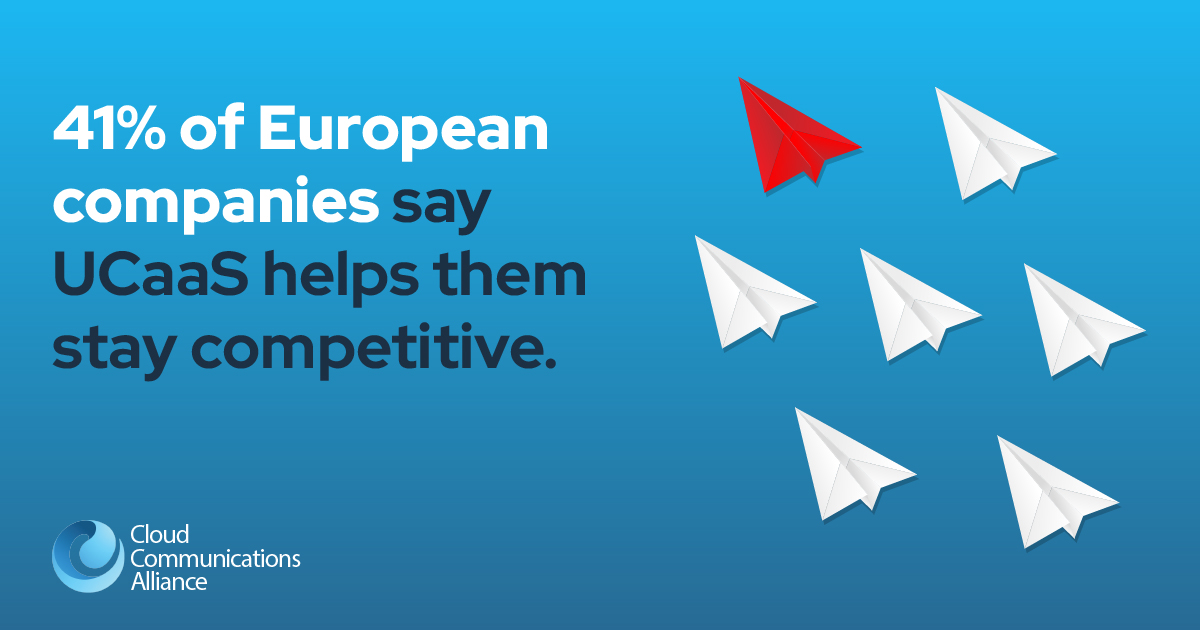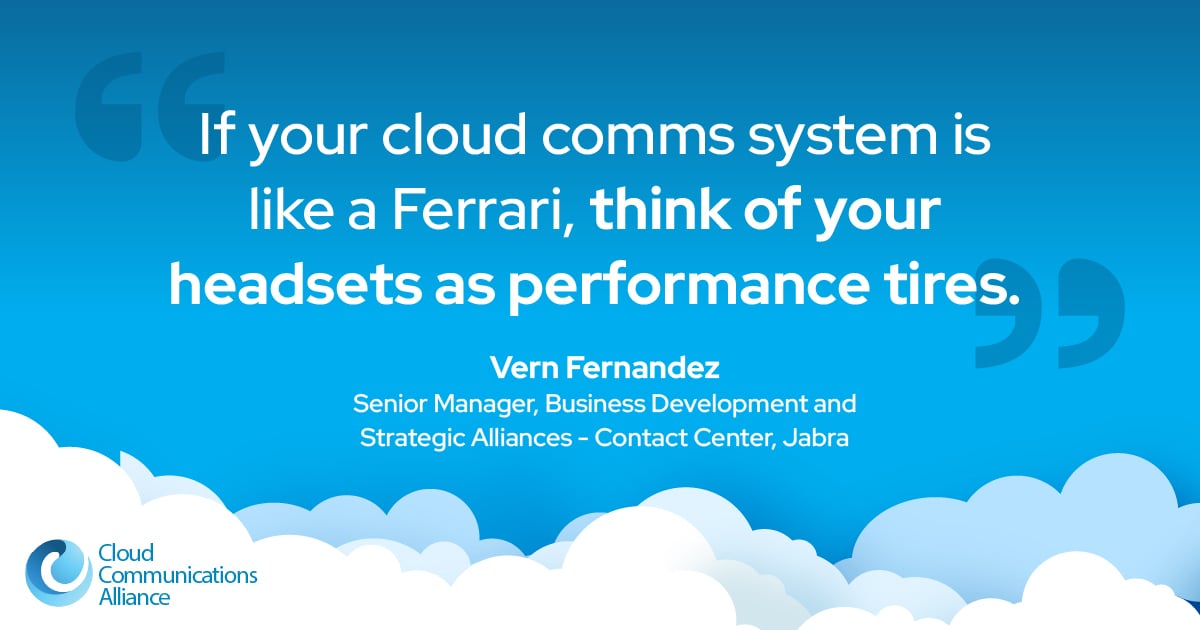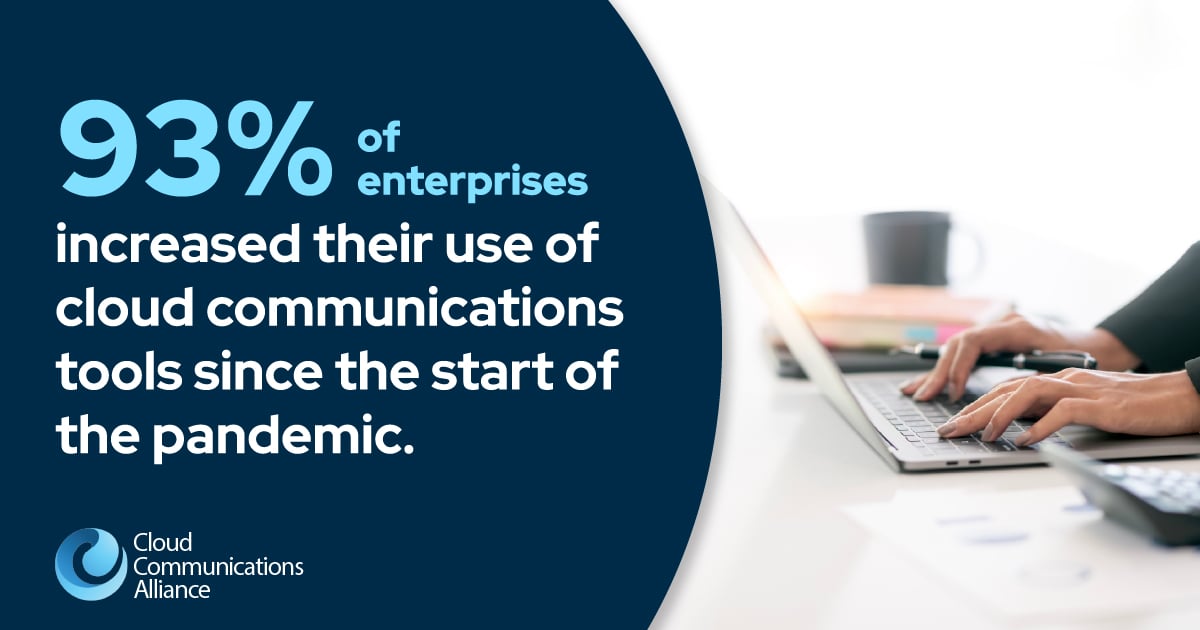In-Person Meetings vs Virtual: Choosing What's Best

By: Iain Sinnott - Head of International Carrier Sales at Enreach for Service Providers
The efficiency of a meeting is not just about time and travel costs. It is also about the outcomes and perhaps the contribution to a closer relationship that brings future inspiration, but have you got your balance right?
Under pandemic conditions, I – like everyone else – conducted the majority of my business in virtual meetings. In truth, virtual working was already a big part of my life as the sales of an OSS/BSS solution to BroadSoft platform owners in three continents had almost exclusively been done over eight years through virtual meetings. So the change was, in principle, not a big one for me to make.
As the weeks passed, more and more knowledge workers reported on LinkedIn that they actually felt more efficient working remotely. It is no surprise that the levels of hybrid working are remaining so high. Now, as the dust is settling, I am interested to see if the conversation regarding meetings – 1:1 or group – switches from the practicalities to the outcomes because I think it is a subject worthy of real investigation.
We were forced to learn that almost all meetings can be virtual. We have discovered that although sometimes technically challenging, most meetings can be hybrid, and we can still think back to the time when most meetings were face-to-face. So now, with choices understood, what choice do we make?
When we sell products to customers, they are actually buying the outcomes. When we agree to meet with people, there will again be outcomes in mind – but which outcomes are best served by which kind of meeting?
Let me suggest a few meeting types (I realize different sectors have different lists, but try these first):
- Project progress – Checklist and issue identification
- Collaboration – Project planning, agenda, and milestone driven
- Feedback – Review of previously shared material
- Discover – Subject outlined but with an open agenda
- Sales pitch – Show and tell
- Service review – Client account management
- Staff management – HR and personal development
Now, remembering that all can be done using any form of meeting, which meeting type is best for each of the above:
- Virtual
- Hybrid
- Face-to-face
The Benefits Of Virtual Meetings
Virtual meetings have become essential in modern workplaces due to their efficiency, flexibility, and cost-effectiveness. Here are some key benefits:
Cost Savings
Eliminates travel, accommodation, and venue rental costs.
Reduces office overhead expenses, making it ideal for remote teams.
Flexibility & Accessibility
Allows participants to join from anywhere, increasing convenience.
Ideal for global teams working across different time zones.
Makes meetings more inclusive for employees with mobility challenges.
Increased Productivity
Reduces commute time, allowing employees to focus on work.
Meetings can be scheduled and conducted faster without logistical constraints.
Easier to record and document, ensuring meeting takeaways are preserved.
Scalability
Can accommodate large groups without requiring a bigger venue.
Webinars and company-wide announcements are more efficient in a virtual format.
Environmental Benefits
Reduces carbon footprint by cutting down on travel and office energy consumption.
Supports sustainability goals by decreasing the need for printed materials.
When To Choose An In-Person Meeting
While virtual meetings are convenient, in-person meetings still hold a strong advantage in certain situations. Here’s when they’re most beneficial:
Building Relationships & Trust
Face-to-face interactions help strengthen professional relationships.
Personal meetings foster better team bonding and company culture.
Crucial for networking events and relationship-driven industries like sales and consulting.
Complex Discussions & Brainstorming
In-person meetings make it easier to read body language and non-verbal cues.
Hands-on collaboration is more effective, especially when using physical tools (e.g., whiteboards, prototypes).
More productive for strategic planning, creative sessions, and problem-solving.
High-Stakes Negotiations & Confidential Conversations
Important discussions, such as contract negotiations or sensitive HR matters, are better handled in person.
Minimizes the risk of miscommunication and ensures confidentiality.
Team-Building Activities & Company Culture
Workshops, retreats, and team events help employees bond.
Strengthens company culture, which is crucial for employee retention.
Customer & Client Engagement
Meetings with clients or stakeholders are often more impactful in person.
Personal interactions can improve trust and decision-making speed.
The Advantages Of Hybrid Meetings
Hybrid meetings offer a best-of-both-worlds approach, blending the convenience of virtual meetings with the engagement of in-person interactions.
Greater Inclusivity & Flexibility
Allows employees to attend whether they are remote or in the office.
Supports diverse teams across different locations and time zones.
Gives employees the choice to work in a way that suits their preferences.
Cost Efficiency
Reduces travel expenses while still allowing some in-person engagement.
Companies can downsize office space since not all employees need to be present.
Scalability For Global Teams
Ideal for companies with distributed teams, enabling real-time collaboration.
Ensures global stakeholders can participate without the need for travel.
Improved Work-Life Balance
Employees can choose whether to attend in person or remotely, increasing job satisfaction.
Reduces burnout associated with excessive commuting or rigid office schedules.
Enhances Business Continuity
Ensures seamless operations during unforeseen circumstances (e.g., pandemics, natural disasters).
Offers flexibility for hybrid or remote work policies without disrupting productivity.
How To Decide Which Meeting Type To Use
Choosing the right meeting format depends on several factors, including purpose, audience, and logistics. Here’s a breakdown of how to decide:
Consider The Meeting’s Purpose
Quick updates, status reports, and training sessions → Virtual meeting.
Strategy planning, brainstorming, and team bonding → In-person meeting.
Large conferences, hybrid teams, and company-wide events → Hybrid meeting.
Assess Your Audience’s Location
If all attendees are in the same city, an in-person meeting may be ideal.
If attendees are spread across different locations, a virtual or hybrid meeting is more practical.
Budget & Resource Constraints
If cost-saving is a priority, virtual meetings eliminate travel and venue expenses.
If interaction is crucial, investing in an in-person or hybrid setup may be worthwhile.
Engagement & Collaboration Needs
If engagement is key, in-person meetings allow better interaction and real-time collaboration.
If remote inclusion is essential, hybrid meetings offer balance.
If speed and convenience matter most, virtual meetings are best.
Level Of Confidentiality
Sensitive topics (e.g., HR discussions, financial negotiations) → In-person.
General updates or presentations → Virtual.
Moderate confidentiality with broader team involvement → Hybrid.
The beer mats here represent a model for the partnership between E4SP as a platform vendor and a carrier/SP, established after an hour of passionate debate (and a couple of beers) but also through the sharing and challenging of ideas and concepts.
From a technology tool kit point of view, the majority of knowledge workers will need to have a remote capability and, as a result, office meeting rooms must deliver a high-quality hybrid meeting capability. But for me, the key responsibility comes down to management and their ability to identify both the immediate and the longer-term outcomes that need to be achieved.
Training needs to be given on the skills required within both virtual and actual meetings but also on the hard and soft outcomes available for each. Technology can truly augment human performance, but there is the potential for additional outcomes when humans share time and experiences together. Conversations that are not asked to run to time and not restricted by on-screen annotation can often spiral into the most energetic and exciting exchange of ideas.
As a member of the cloud technology community, it is easy to write a narrative to suit the sales budget and our product specification, but our customers’ focus is and will always need to be on their outcomes – and for that, we still need to encourage and support human-to-human activity.
Virtual vs In-Person Meetings: Frequently Asked Questions (FAQs)
What are the biggest challenges of hybrid meetings?
- Technical difficulties, such as audio/video issues and internet instability.
- Engagement imbalance, where remote attendees may feel excluded.
- Coordination challenges, requiring seamless scheduling and tech support.
- Disparity in experience, as in-person attendees might dominate discussions.
Why are virtual meetings the most practical for remote teams?
- Consistent communication across different locations.
- Easy recording and documentation for later reference.
- Cost-effective collaboration without travel expenses.
How can I make hybrid meetings more effective?
- Use high-quality audio and video for seamless communication.
- Ensure equal participation by actively engaging remote attendees.
- Assign a facilitator to balance contributions from both in-person and virtual participants.
- Utilize collaborative tools like shared documents and live polling.
What technology is needed for hybrid meetings?
- High-definition cameras for clear video.
- Quality microphones and speakers for clear audio.
- Video conferencing software (e.g., Zoom, Microsoft Teams, Webex).
- Interactive tools like digital whiteboards and screen-sharing options.
Are hybrid meetings the future of workplace collaboration?
Yes, hybrid meetings are becoming the standard for modern businesses, offering a balance between in-person engagement and virtual convenience. They cater to remote work trends, global collaboration, and flexible work environments.


